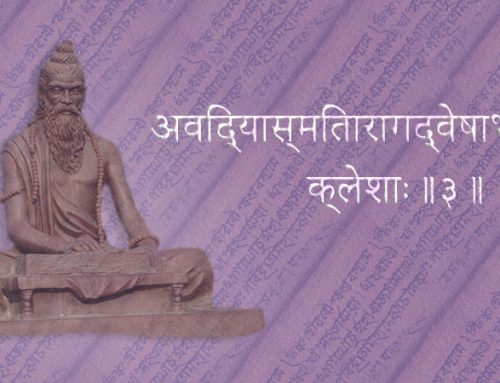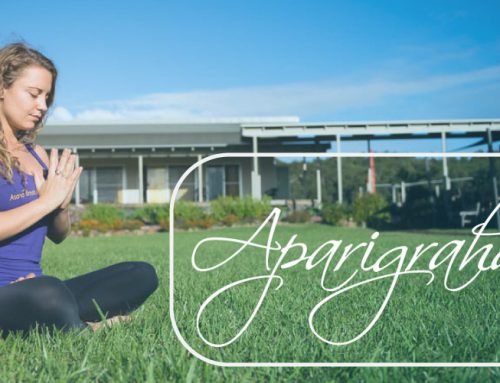
Your alarm goes off at 5am, it’s dark outside and so warm and comfortable in bed. Do you pull back the covers, ready, willing and able to step up and step onto the mat as planned? Or do you turn the alarm off, pull your pillow over your head and roll over, feeling slightly guilty? The difference may lie in the personal quality of tapas.
Tapas is one of the restraints that create inner integrity, called Nyamas, one of the eight limbs of yoga. Tapas translates to a burning effort which involves purification and self-discipline. It is the quality of our attention and effort that we apply to expand our minds against their perceived limitations. BKS Iyenger suggests that “life without tapas is like a heart without love”. Performing tapas is an act of self-love as we choose actions which we know benefit our minds, bodies and hearts.
Stephan Kahlert, Byron Yoga Centre meditation and yoga teacher and Sanskrit philosopher says, “Tapas is an inner fire that helps people resist the natural sluggishness of body and mind. It helps you overcome inertia and self-doubt and inspires you to jump over your own shadow.”
Hindu mythology recounts that the Divine Being voluntarily underwent intense self-discipline, or tapas, in order to create the universe. Performing tapas caused the Divine Being to perspire and from the sweat came the cosmos with its countless beings and things.1 Beings such as you and I.
Behind the concept of tapas lies the idea that we can rid the body of rubbish by burning off toxins, habitual patterns, and past impressions, known as samskaras, which inhibit our development and growth. The key elements of tapas are commitment and endurance.
“There are ways of stoking the fire,” says Stephan. “Start by making small commitments. Ask a friend to pick you up at 6 am to go for a walk or to accompany you to a yoga class, even just once a week. You might not necessarily feel like it at the time, but with a friend waiting at the door you will be more inclined to challenge the resistance of your mind. Over time your commitments can become more serious.
“Perhaps, instead of a holiday where you eat and drink by a pool, you choose a yoga retreat where you will be surrounded by like-minded people doing daily yoga, meditation and pranayama practice and eating healthy and nutritious food. You then give yourself the opportunity of tapping into the greater collective energy which will fan the flames and help set structures and support in your daily life,” says
Stephan.
The fruits of nourishing our tapas are higher levels of energy and greater control over the fluctuations of the mind, helping us stay in the present moment. As Stephen states “Tapas is a by-product of spiritual practice, which makes you more aware and alert. Alertness and awareness brings tapas. They go hand in hand.”
Our body and minds are limitless in potential and by paying attention to our eating habits, body posture and breathing patterns we are creating better health and happiness within. Self-fulfillment comes from an overflowing of our life energy or prana which is inside each and every one of us. It only needs to be released from our self-imposed limitations. As Georg Feuerstein says, “Genuine tapas makes us shine like the sun. Then we can be a source of warmth, comfort and strength for others.”
References
The Deeper Dimension of Yoga, Georg Feuerstein (2003).



